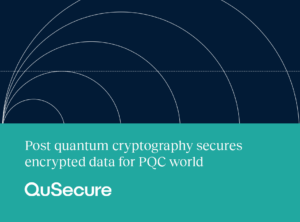QuSecure Honored as Global Product Leader in Post-Quantum Cryptography by Frost and Sullivan

Ian Barker / Beta News / 19 January 2023
What if there was another way to guard data from the risk of being broken by quantum computers, one that didn’t involve tinkering with hardware or software configuration?
This is where the concept of quantum-safe cryptography comes in. Quantum-safe cryptography is a term that describes an emerging technology that uses special encryption techniques to protect data from a quantum computer’s attack.
The main difference between quantum-safe cryptography and traditional encryption methods is that quantum-safe cryptography uses algorithms specifically designed to withstand the force of a quantum computer. Such algorithms are called post-quantum and rely on complex mathematical problems that a quantum computer can’t solve quickly.
The idea behind post-quantum cryptography is that, by encoding data in a way that quantum computers can’t decipher quickly, it will remain safe from malicious actors even if their technology improves.
This makes quantum-safe cryptography an essential tool for protecting data from the risk of a quantum computer attack. It can provide a secure layer of protection for our data, no matter whether it is in transit or stored on a device.
The good news is that quantum-safe cryptography is already being adopted by companies, governments and institutions. This means that we can rest assured that our data will remain safe even in a post-quantum world.
As the field of quantum computing advances, it is important that we remain vigilant and take steps to ensure that our data is as secure as possible. Quantum-safe cryptography is one of the best ways to ensure that our data remains safe and secure for years to come.
Read the full article from Beta News here.